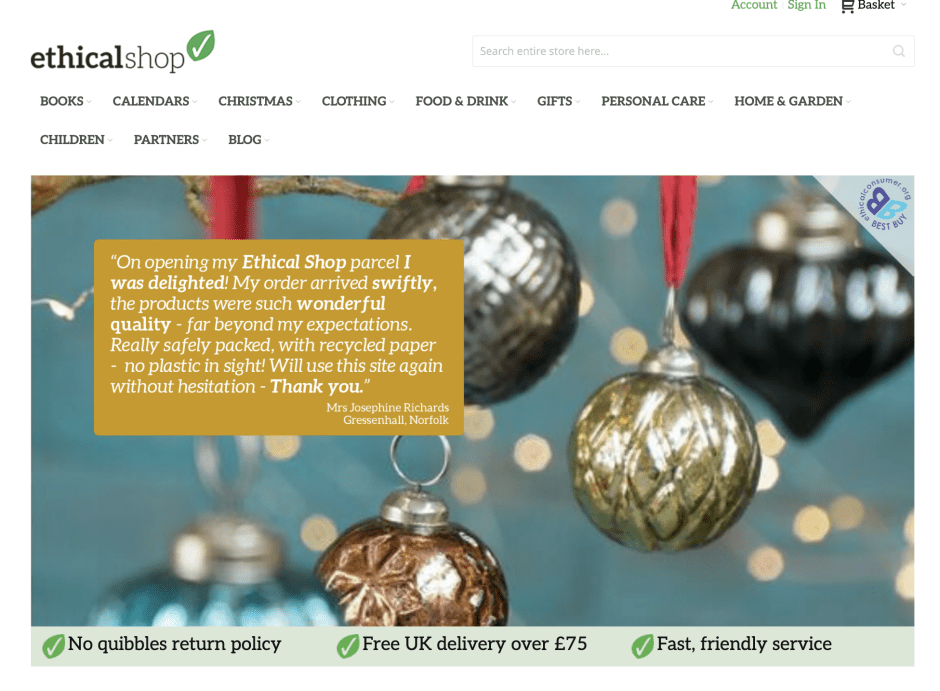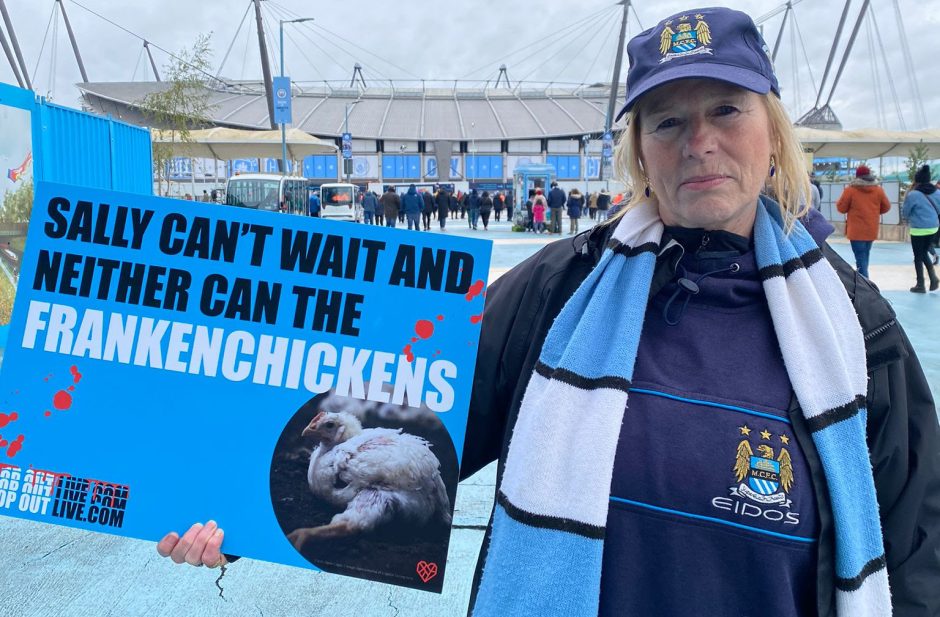Ethical trading and ethical consumerism come sharply into focus in the final months of the year. Black Friday – the Friday after Thanksgiving in the United States (this year, 24 November) – traditionally marks the start of the Christmas shopping season and is the biggest shopping day of the year. And Christmas buying – with the race to attract shoppers looking for presents, festive food and decorations – reaches its mad-cap peak.
For co-ops, balancing ethics in products and supply chains with the commercial realities of a capitalist economy is tricky, and one that is constantly evolving. IGD research shows customers largely want to embrace ethical shopping, but baulk at the prices.
In the Co-op News Christmas Gift Guide, we have shared products and platforms that offer ethical alternatives to some of the better-known high street and online brands. One of these is the Ethical Shop, owned and managed by the New Internationalist co-operative. It sells a range of ethical goods, from fair trade to organic, recycled to vegan. Best-sellers include its One World calendars, recycled Sari Bunting – and organic boxer shorts.
“We have a clear ethical buying policy that all of the products we stock must adhere to, and are guided by organisations such as the Fair Trade Foundation, the Soil Association, BAFTS and also Ethical Consumer when selecting suppliers,” says Emma Blunt, merchandising and stock manager for the Ethical Shop.

“But buying ethically often means the products are more expensive for our customers. Also the tiny groups we really want to help and buy from may not be able to afford to have the organic or fair trade stamp that we look for. So, we try to do our own research and still commit to buying from these groups when we are confident they meet our ethical credentials.”
This takes time, particularly for a small team, but it’s important to Ethical Shop “because we want to offer products that mean more than just the product itself,” says Blunt.
“When someone buys from the Ethical Shop, the item may be more expensive than if purchased from a superstore, but we know customers are aware that they’re making a social and environmental investment too – not just a commercial purchase. And of course, they’re also supporting a co-op.”
Ethical buying – and Labour standards in particular – are important to the larger retail co-ops, too. The UK’s Co-op Group says it works to “champion the best labour standards in our supply chains, acting responsibly towards the workers who make our products and being proud of how we behave towards the people we do business with”.
In a commitment published on its website, the organisation declares its support for the Universal Declaration of Human Rights and protecting the fundamental rights of workers in its supply chain. Alongside this, it has a Sound Sourcing Code of Conduct which sets out the workplace and employment standards it applies across its supply base, which is based on the Ethical Trading Initiative (ETI) Base Code and core international labour standards.
But it also sees improvements in working conditions in a global supply chain as a shared responsibility, and so has a Supplier’s Guide to Ethical Trade, setting out the standards it expects suppliers to meet, alongside a comprehensive supplier engagement programme.
The Group has several key ways it attempts to ensure workers who make its products are treated responsibly and ethically.
“All our own-brand direct suppliers complete a Self-Assessment Questionnaire [and] we continue to increase the transparency of our indirect supply chain,” the organisation says in a statement, “and we carry out hundreds of independent ethical audits on supplier sites each year based on a risk assessment.”
The Group also holds annual ethical trade review meetings with key suppliers, and supplier workshops and conferences across the UK and internationally. Alongside this, its ethical trading monitoring programme aims to stamp out modern slavery and exploitative working practices across the world, and reaches nearly 800,000 workers in 2,838 sites in 66 countries.
However, retailers are only one-half of this ethical balancing act. Consumers and the choices they make have a significant impact on retailer behaviour and, long-term, the sustainability of the wider ethical retail system.
In the second week of November, the UK marked Ethical Consumer Week, organised by Ethical Consumer Research Association (ECRA) – the co-op which publishes Ethical Consumer Magazine. Online and in-person events discussed how circular economies offer an alternative to food air miles, and looked at policy and financing options for ethical consumerism. On 9 November, delegates met in London for a one-day conference exploring how consumer activism can create thriving communities.
“At the conference, we looked at how the social and environmental crises we are living through have become economic and political crises too,” says Rob Harrison, director of Ethical Consumer. He highlights how ECRA’s annual market research report, presented at the event, showed “slowing sales almost everywhere”, including ethical markets, and that buying locally for ethical reasons also appeared to be in decline.
“But we did hear from lots of local projects which were successfully using co-operative structures to create resilient communities amidst all the chaos,” Harrison adds.“We also looked at system change through climate action and mechanisms to build democratic stakes inside global multinationals. Despite the chaos, people left feeling buoyant.”
Related: Interview with Rob Harrison on co-ops and ethical consumerism
But the weekend before delegates in London were discussing consumer activism, protesters in Manchester were targeting the city’s new music venue, Co-op Live, urging its sponsor, the Co-op Group, to improve chicken welfare standards.
The protest around animal welfare gathered momentum at the Group’s AGM in May 2023, where members passed a resolution to consider adopting the Better Chicken Commitment (BCC).
On 4 November, animal protection charity the Humane League UK was joined by Manchester City fans ahead of the club’s Premier League game against Bournemouth. Images of ‘frankenchickens’ were projected onto Co-op Live, which is a 5-minute walk from the club’s Etihad Stadium, with protesters also setting up a spoof ‘Cop-Out Live’ website, highlighting the plight of birds which are “bred too big and too fast in spaces that are too small”.

“Sponsoring ‘Cop-out Live’ is a misspend when low-welfare ‘frankenchickens’ still dominate Co-op’s supply chain,” said the League in a statement.
At the Group AGM, managing director of Food, Matt Hood, said implementing the motion’s full asks would increase costs by 30-35%, which would impact consumers already struggling amid the cost-of-living crisis. The Group later said that “in response to the favourable vote and our members’ wishes, the board are actioning the asks within the motion”, including measures to improve stock density, to take effect in 2024.
Related: Chicken farming row tests the Co-op Group’s ethical mettle
But this matter – which pits sustainability issues against affordable pricing in the middle of continuing economic uncertainty – highlights just how difficult the balancing act is between retailers and consumers. While environmental sustainability still plays tug of war with commercial viability, the wider cost of ethical consumerism will be high, which ever angle you look at it.